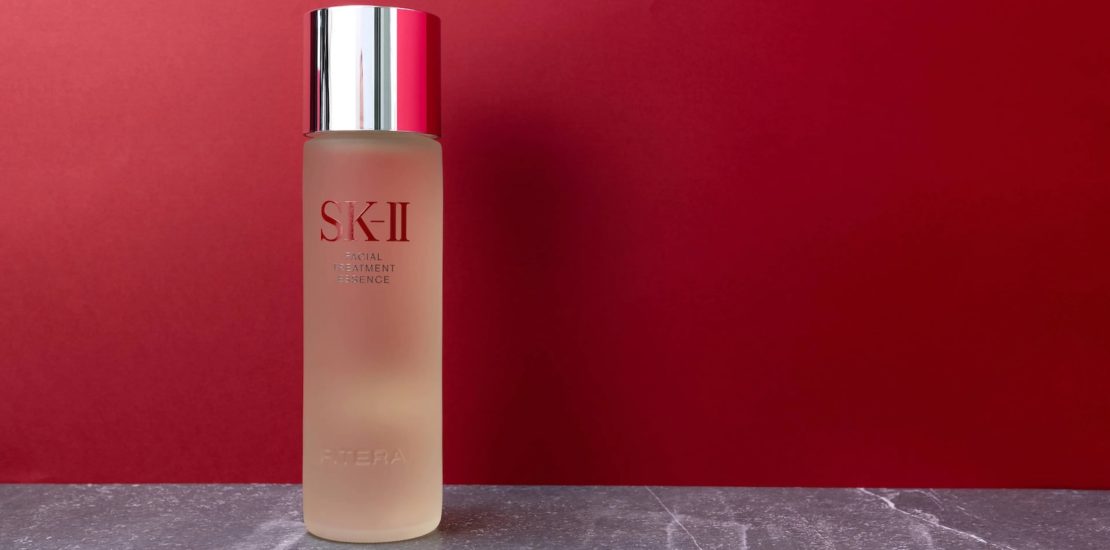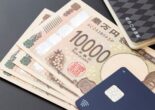In this article, I have given a step by step guide on using Japanese skin care products as well as the Japanese vocabularies to watch out for and some detailed descriptions of each product.

Comparable to Korea, Japan is just as equally obsessed with their skin care and products. You go to any drug store and get lost in aisles of different brand skin care products all competing for their shot to be bought and used on your face.
You can find skin care products almost anywhere! In supermarkets, drug stores like Matsumoto Kiyoshi, Sun Drug, @cosme stores, department stores and even convenience stores. I highly recommend purchasing your skin care products at drugs or beauty stores as they have various types of products to choose from to suit your skin. However, if you don’t care too much for the specifics, convenience stores and supermarkets have small but equally good selections to quickly choose from!
Down below I have listed the basic Japanese skin care steps to follow as well as some vocabulary on skin care which may be helpful when finding the right skin care product and ingredients for your skin.
Cleanser クレンジング
Cleanser is the most important step in any Japanese Skin care as it removes your makeup and all the other dirt that has built up on your face. Cleansing allows the skin to properly boost its metabolism and allows a clean surface to work on with the oncoming skincare products.
Depending on whether you wear makeup or not, usually there are 2 steps when it comes to cleansing the face. The first step is a cleanser to remove your makeup. There are many different types of cleanser but the most common ones used are:
- Cleansing Oil : クレンジングオイル
- Cleansing Gel : クレンジングジェル
- Makeup Wipes : メイク落としシート
Face Wash or Face Soap (洗顔料)
The second is to cleanse again but this time you use a facial wash to remove the leftover dirt and products from the first cleansing. Face Soap can come in different forms such as:
- Face Soap (Cream Type): (洗顔料)
- Bar Soap: 石鹸
- Face Foam: 洗顔フォーム
- Face Gel: 洗顔ジェル
Exfoliator
Exfoliating the skin means to remove dead skin cells from the top layer which helps unclog pores, brightening and activating the skin for a healthy turnover. After exfoliating, skin care products have a better chance of penetrating deeper into the skin. But you should not exfoliate the skin everyday as it will cause it to lose the natural oils, imbalance the pH, dry out the skin or inadvertently produce excess oil causing congested pores and acne.
- Peeling ピーリング
- Scrub スクラブ
Toner 化粧水
Toners are what helps balance the pH after you removed all the dirt and natural oils from your skin. This also hydrates and allows the next product to be easily absorbed.
Essence エッセンス
Essence helps the skin with hydration and regeneration of cells for a more youthful appearance. You may choose various essences depending on the specific skin problem you would like to tackle such as dryness, wrinkles, or redness.
Serum セラム
Serum is similar to that of oils but less oily and is a powerful product that contains a lot of active ingredients and has various types to assist with different skin conditions.
Eye Cream アイクリーム
There are no sebaceous (oil) glands around your eyes so it is important to keep the area around your eyes hydrated, moisturized and protected. If your skin is dehydrated or as you get older, fine lines and wrinkles may appear, which is why it is helpful to apply and massage eye cream around your eyes.
Face Mask or Face Pack マスク or パック
Face masks are one of the greatest and most raved about skin care products as it is known for containing full of active ingredients and various selections. It helps combat specific skin concerns depending on the mask you use as well as enhancing the skin’s natural abilities. The norm in Japan is using a mask about once or twice a week.
Clay Mask クレイマスク
Clay masks are designed to help with skin troubles like oily skin and clogged pores. They remove excess dirt and have absorptive properties.
Cream or Emulsion クリーム or 乳液
This is the last step where you take your cream or emulsion to seal all the good products you have just carefully layered and applied to your skin. Creams can be very helpful when combating dry skin but they can be quite thick and may cause your pores to clog if you have oily skin. If so, it may be best to result in emulsions which are lighter and more liquid than creams.
Sunscreen 日焼け止め
Whether it is a sunny day or a rainy day, we all must watch out for UVA and UVB rays. The sunlight that reaches us are made up of two harmful rays which are:
Ultraviolet A (UVA): Long wavelengths is indicated as PA with a plus sign next to it. The more pluses, the more protection. PA+, PA++, PA+++ etc.
Ultraviolet B (UVB): Short wavelengths are measured in SPF and you will see standard numbers such as 15, 30, and 50.
Helpful Vocabularies when looking for sunscreen:
- Ultraviolet rays: 紫外線
- Water resistant: 耐水性
- Waterproof: ウォータープルーフ
- Unscented: 無香料
- No Colouring: 無着色
Skin Care Vocabularies:
- Hydration うるおい
- Pores けあな
- Acne ニキビ
- Whitening びはく
- Dryness 感想
- Anti-Aging アンチエイジング
- Moist しっとり
- Refreshing さっぱり
Popular Japanese skin care ingredients to look out for:
- Alpha-Hydroxy Acid: This ingredient breaks down the glue that holds dead skin cells together and brightens the skin.
- Antioxidants 抗酸化剤: This ingredient protects the skin against environmental stressors like free radicals.
- Argan Oil アルガンオイル: One of the most powerful and effective oils, it contains skin-benefiting lipids, fatty acids, and antioxidants that aids with dryness.
- Benzoyl-Peroxide 過酸化ベンゾイル: This ingredient is an antibacterial agent which treats acne by killing the bacteria.
- Beta-Hydroxy Acid: This ingredient penetrates the pores deeply to help combat acne and blackheads.
- Collagen コラーゲン: This ingredient allows moisture to be kept in the skin and helps with skin elasticity.
- Green Tea 抹茶: This ingredient is an antioxidant that aids with anti aging and sun damage. It also helps absorb excess oil and regulate sebum productions.
- Hyaluronic Acid ヒアルロン酸: This ingredient is naturally found in the components of skin tissue but has been re-created to help restore, hydrate and protect the skin from environmental stressors.
- Jojoba Oil ホホバオイル: An oil to help combat dryness. It may also be incorporated in makeup removers.
Vitamin ビタミン:
- Vitamin A : or retinol helps with uv damage, anti-aging, encourages skin cell production and infections like acne bacterias.
- Vitamin C : helps with the production of collagen and brighten the skin such as acne scars and hyperpigmentation.
- Vitamin E : Helps with antioxidant damage and protects against sun damage.
There are so many skin care products and ingredients you can choose from in Japan. You can literally get lost in a sea of products and find it confusing as to which one to purchase. Each has beneficial factors that can meet your desired need, but just like life, skin care is also a trial and error. Everybody’s skin is different and some products may work well for others but not you. For example, I suffer from dryness even in the summer so I benefit using oils, but my sister on the other hand has oily skin. If she uses oil in the summer, excess serum is produced and can cause acne and irritation.
Japanese skin care may seem like a huge commitment, but it only actually takes a few minutes a day to implement. There are methodical steps to enhance absorption and get full use of products, but these simple steps are what helps dramatically improve your skin’s texture and complexion. As you get older, you lose collagen production and elasticity in your skin, so it’s never too late to begin your skincare regime to help keep and maintain a healthy skin!



